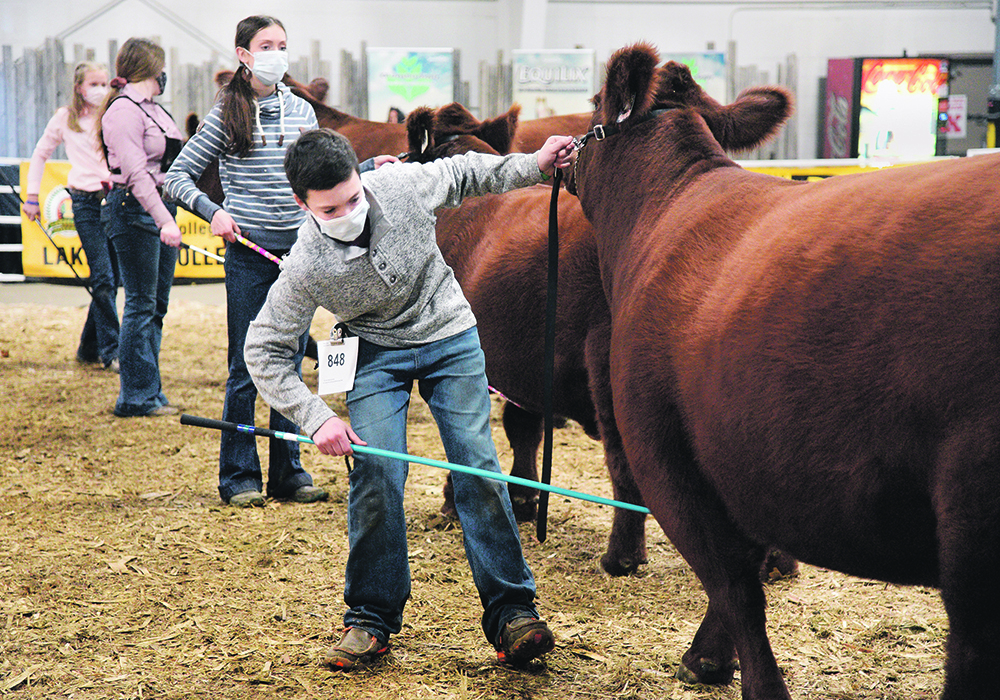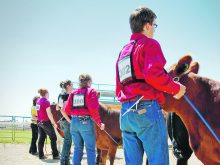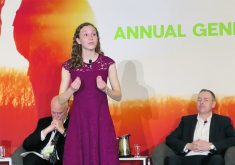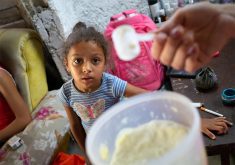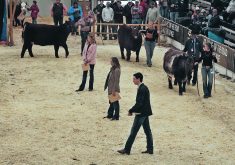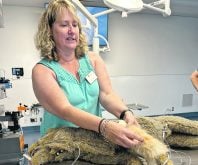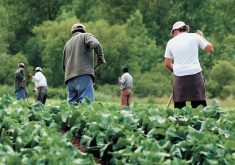The 4-H motto is “learn to do by doing,” and this year members have been learning how to do without certain aspects of their usual club activities.
The global pandemic has led to cancelled shows, tours and other 4-H events across the Prairies.
In March, COVID-19 hit the 4-H world like a late winter blizzard, shutting down all in-person programming for a month.
One month turned into two, two into three, and eventually all district, regional and provincial programming was suspended for the remainder of the membership year that ended Aug. 31.
Read Also

New coal mine proposal met with old concerns
A smaller version of the previously rejected Grassy Mountain coal mine project in Crowsnest Pass is back on the table, and the Livingstone Landowners Group continues to voice concerns about the environmental risks.
“Like other organizations, it has been a very challenging time and we’ve had to change the way that we’ve done things,” said Cera Youngson, executive director of 4-H Saskatchewan.
“4-H Saskatchewan has been around our province for over 100 years and has been really good at adapting to different situations very quickly, and they have proven that again in the last six months,” said Brooklyn Trask, 20, from the Saskatoon 4-H Beef Club.
Following the pandemic announcement, 4-H Saskatchewan suspended all in-person programming, which affected its annual general meeting, citizenship day, celebration of the 60th anniversary of its charitable foundation, 4-H hall of fame inductions and a host of livestock and equine events.
In an effort to keep 4-Hers engaged while they stayed home, the Exploring 4-H @ Home virtual program was launched in April.
Through virtual programs, the annual meeting, citizenship day and equine symposium were held. Clubs worked to complete their year through online means or at home. Virtual 4-H judging clinics were held. Even the August summer camp was a virtual event.
Resources were prepared to support clubs in hosting virtual achievement days and a webinar and resources helped members market their project animals.
“4-H is hands-on and learning to do by doing, but the pandemic gave our membership an opportunity to learn to do by doing in a different way,” said Youngson.
“We saw clubs take advantage of different teleconferencing or virtual meetings, software things like Zoom, Facebook groups and messaging service.”
Rumpel said 4-H beef clubs missed the hands-on educational component of extracurricular activities like achievement days and regional shows in March and April, which is when many 4-Hers traditionally sell their steers.
In her club, she said each family was responsible for independently selling their animals, which for her amounted to four steers. They quickly sold to friends and family.
Even after cutting and wrapping, she said they made more money through private sales than the traditional auction, which has members rethinking their options.
“We’ve had a few families say the same thing, that they would rather sell personally to people they know then go through the auction sale at our regional show because you never know what’s going to happen there. Whereas with this you have a set price and if people want it, they want it. If they don’t, then they don’t,” she said.
“It was way more work, but it was definitely worth it.”
Kati Culbertson, 20, a member delegate from the Alida and Area 4-H Beef Club, agreed.
While members could sell independently, most participated in a virtual sale day.
She said each participant was responsible for making a video of their animal, which was submitted to club leaders who then advertised to buyers on Facebook.
“We had really good turnout and it was almost as good as being in person. Obviously we didn’t get that personal touch to it, but prices were fairly close,” she said.
“It’s the same with cattle markets, it is generally a little lower (financially) because you’re not seeing that animal in person.”
Culbertson said all options will remain open for her district down the road because COVID-19 has revealed benefits to having multiple choices and a broader knowledge of marketing.
“Now with COVID we’re learning how to do video chats, conference calls and online sales, which could be the new and innovative way for the beef industry. I think it’s really good that we’re learning it at an early age and understand the ins and outs. So I would say from a beef perspective and my club perspective, that is probably the biggest benefit we have from COVID,” she said.
Richard Moellenbeck has been a leader of the Bar West 4-H Beef Club in Englefeld, Sask., for years.
He said that while members completed their record books and got them graded, the club essentially went through an exercise of motions.
“We got them judged, but we didn’t give any placings. We felt that it wasn’t really fair to the kids to have them judged, but still they needed to be critiqued as to how they could do better,” said the purebred Shorthorn producer. Members’ steers were sold to some previous 4-H buyers.
“As leaders, we came up with a price that we felt was fair to the kids, or at least they’re getting their costs out of it. They’re not getting a great big premium as in the past, but they got enough premium to move forward and at least get the steers sold,” he said.
“There’s an expiry date on those steers. They get big and fat and they eventually have to find a deep freeze.
“I guess they got the reality check that life isn’t always fair in the beef business. That’s part of the marketing and just the way it goes,” Moellenbeck said.
However, he added that the process has helped members gain a better sense of what marketing entails.
“Most 4-H members get a premium on their steers. Sometimes they don’t and it does give a bit of a reality check to the members and to the parents.
“We all want to see our kids do good and try to get that red ribbon at the end of the day. I always tell people, yeah, it’s nice to win the banner, but I haven’t been able to get a loan on a banner yet when I go to (the) bank.”
Registration for the next year is complete, however current provincial restrictions don’t allow more than five members in private homes, which has many clubs meeting in larger venues such as curling and hockey rinks.
Moellenbeck said most kids are more familiar with social media tools than their parents, which has also helped.
“It’s still not the same as face-to-face. I like seeing the knee-jerk reaction when a topic is brought up. I guess if we have these face-to-face we might have to wear a mask anyways so you can’t get the facial expressions. You have to read somebody’s eyes and I’m not real good at that yet.”
Kurt Kinnear, chief executive officer of 4-H Alberta, said 2020 proved educational.
“Our youth need us more now than ever, even if we can’t meet in person. We need to continue to grow. We need to continue to learn to do by doing. We need to stay busy and not be sitting at home and worrying about things. So it’s a great opportunity for 4-H to prove just how resilient it is to the community.”




